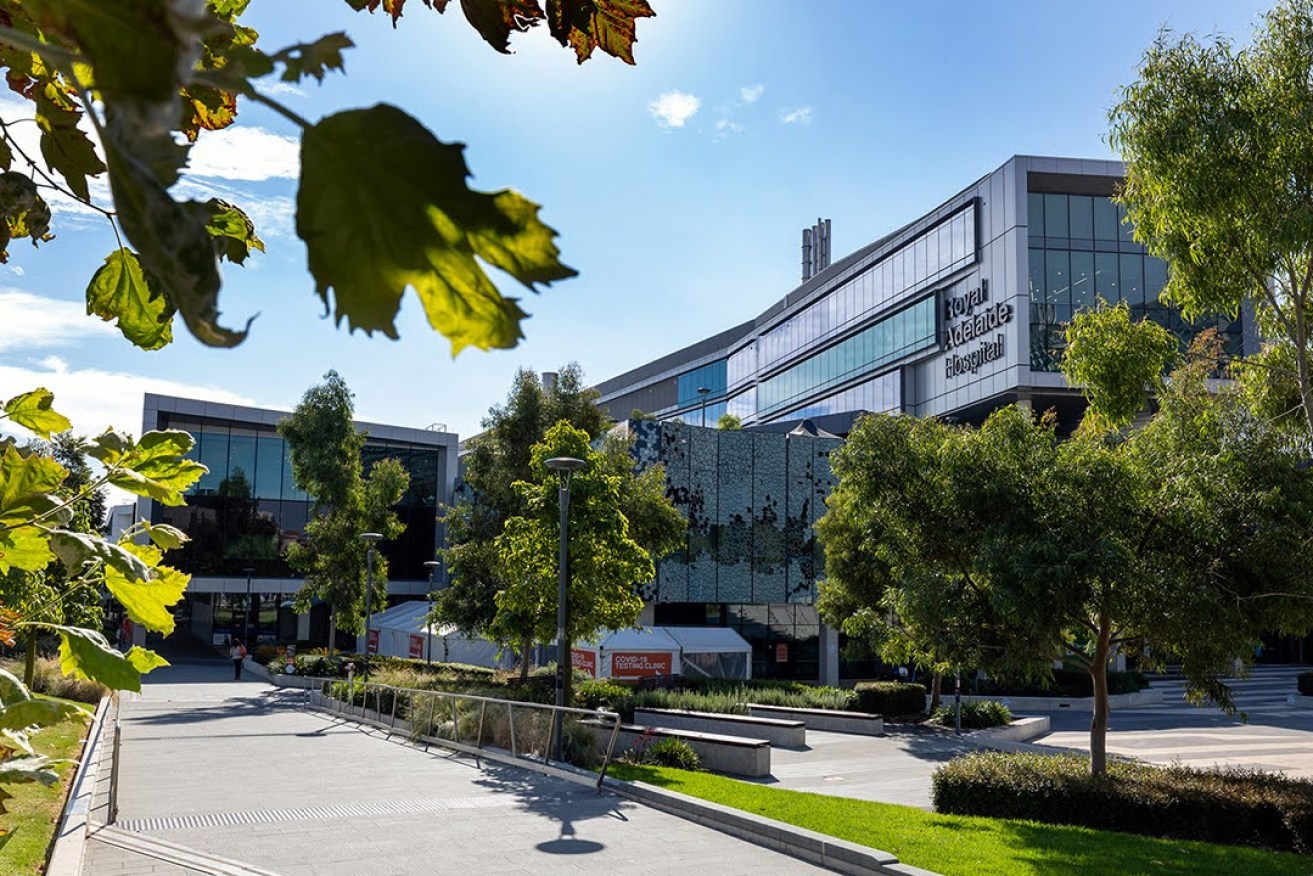‘Mismanaged culture’ at Adelaide hospitals, doctors tell ICAC
UPDATED: Patient care at metropolitan Adelaide hospitals is at risk due to a “high level” of workplace bullying, harassment and overwork, the Australian Medical Association has told an Independent Commission Against Corruption evaluation.

The AMA has raised concerns about bullying and harassment at Adelaide hospitals. Photo: Tony Lewis/InDaily
In a submission to ICAC deputy commissioner Paul Alsbury, Australian Medical Association SA president Dr Michelle Atchison claimed there was a “mismanaged culture that allows negative behaviour to occur” at the Central Adelaide Local Health Network (CALHN).
She claimed junior doctors reported a “high level” of bullying, harassment and overwork, with many of those at the network’s two major sites – the Royal Adelaide and Queen Elizabeth Hospitals – feeling like they could not confidently raise the behaviour with senior staff.
“AMA(SA) Council suggests that these results demonstrate a mismanaged culture that allows negative behaviour to occur, such that affected staff members cannot perform at their best – and, in fact, put themselves and their patients at risk,” she wrote.
“Fatigue, rostering with inadequate breaks, and excessive shift work are known to lead to detrimental outcomes for patients, but it seems there is still some way to go in management’s recognition of these issues such that the LHN (local health network) is improving working conditions”.
The submission will be considered by Alsbury as part of his evaluation into the practices and policies of the Central Adelaide Health Network, which alongside the Royal Adelaide and Queen Elizabeth Hospitals also oversees the Hampstead Rehabilitation Centre and mental health services at Glenside.
The ICAC evaluation was launched in April after an earlier 2019 investigation by former anti-corruption commissioner Bruce Lander uncovered cultural issues, bullying and conflicts of interest within SA Health.
Alsbury has previously said that his evaluation was not responding to any specific allegation, but would instead allow him to examine “a public authority’s practices, policies and procedures, highlighting those which properly safeguard against corruption and identifying any weaknesses or opportunities for improvement”.
His terms of reference include the extent to which CALHN’s “systems and culture encourage reporting of wrongdoing”.
In her submission to Alsbury, penned in June and released publicly this week, Atchison outlined the results of the annual AMA “Hospital Health Check” survey, which tracks the experience of junior doctors working as hospital interns.
The 2021 survey found 22 per cent of the 1502 junior doctors working across all metropolitan hospitals who responded reported experiencing bullying or harassment at work.
More than one third – 34 per cent – of respondents reported they had witnessed bullying or harassment.
Atchison wrote the survey found respondents felt least confident about raising issues of bullying and harassment at the Queen Elizabeth and Royal Adelaide Hospitals.
“In response to questions about having personally experienced or witnessed bullying or harassment, the 2021 Hospital Health Check results indicated that senior medical staff, medical colleagues and nursing staff were the main perpetrators,” Atchison wrote.
“If the prevailing system and culture dissuade doctors from reporting these adverse events, there can be no comprehensive inquiry or sanction that could or would punish offenders and minimise the likelihood of repeat offending.”
As well as raising issues about workplace culture, Atchison said the AMA had been made aware of instances where specialist doctors could engage in “double dipping” that might add costs to the health system.
She said “double dipping” could occur if a specialist were to be paid by SA Health for providing clinical services in a regional hospital at the same time as they would bill their services under a “fee for service” arrangement.
“We ask whether, if such an arrangement existed, who or what entity would receive the ‘fee for service’ payment?,” she wrote.
An SA Health spokesperson told InDaily CALHN had undergone “immense changes” over the past few years to improve its governance and culture, with improvements continuing.
They said earlier this year, CALHN was the first health network in Australia to implement a professional accountability program in partnership with Vanderbilt University, which provided it with the ability to “identify and respectfully share feedback with peers or co-workers of unprofessional behaviours that do not align with the values of the organisation”.
The spokesperson said the program also gave CALHN a framework to define “critical standards of safety and professionalism”, and address behaviours that undermine them.
“This program has been well-received by our medical workforce and in particular provides safety for junior doctors to report concerns of professional conduct and bullying,” they said.
“CALHN has also been working closely with the junior medical workforce to support their wellbeing and workload issues during COVID and is implementing a wellbeing pathway to support the wellbeing of all staff.
“CALHN supports the Independent Commissioner Against Corruption (ICAC) for South Australia’s ongoing evaluation of the network’s practices, policies and procedures.
“Our network works to provide the Commissioner with the information required to carry out the evaluation.”
Lander’s 2019 inquiry – called “Troubling Ambiguity: Governance in SA Health” – found that the health department was “ripe for exploitation by corrupt employees” and that misconduct and unmitigated conflicts of interests were commonplace.
The AMA was critical of Lander’s probe, claiming it did not point at those who were responsible for the corruption he identified.
At the time, the association questioned whether another ICAC investigation into SA Health could damage “innocent staff who had felt under constant siege in an atmosphere of negativity”.
In her submission to Alsbury, Atchison implored him to “prevent additional pressure on CALHN staff – staff who have now tolerated as an additional burden nearly 30 months of COVID-19”.
“We hope that your evaluation will have meaningful and valuable results,” she wrote.
Alsbury has previously said that he intended to deliver a report on his evaluation to parliament by the end of the year.
“It is important that employees of the network, and the community, can be confident that complaints and investigations are dealt with appropriately and consistently,” he said in April.




